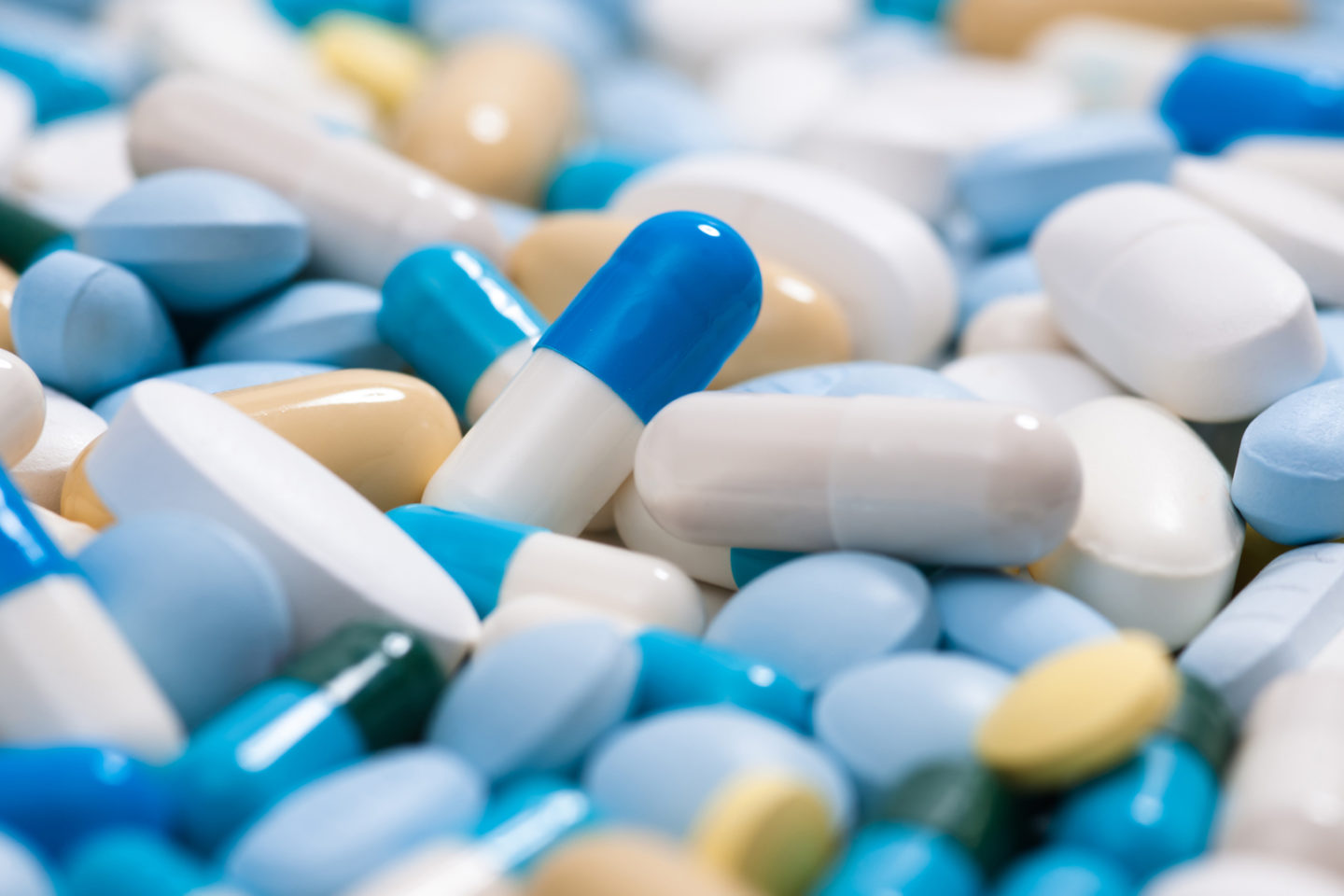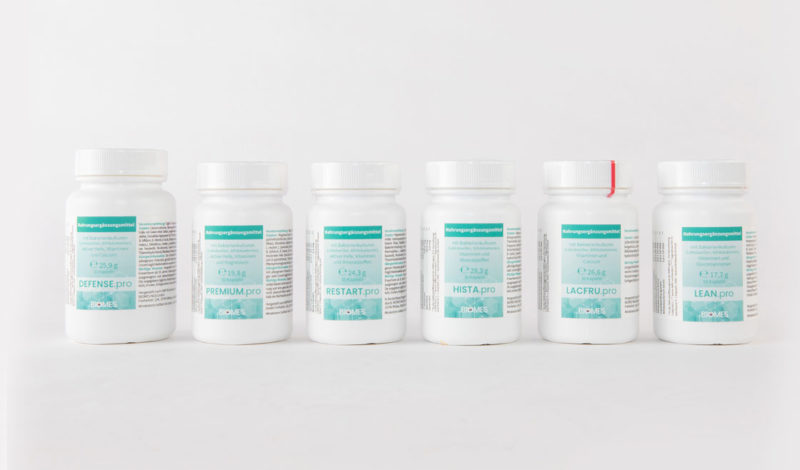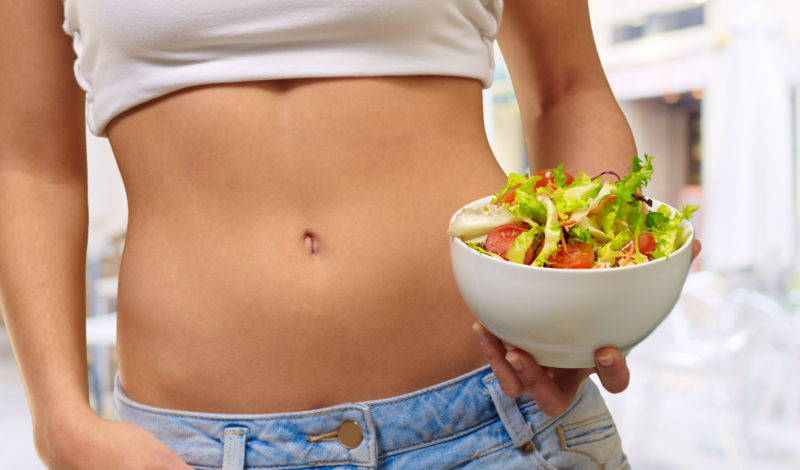What are probiotics and how do they increase our well-being? The term "probiotic" derives from Latin and is composed of [...]

Intestinal rehabilitation after antibiotics
Help for bacteria
It is necessary to restore your stomach flora after antibiotics. Because antibiotics work against natural bacteria in the body, the number of bacteria can be significantly reduced after antibiotic use. Most of the time, this creates an imbalance – a so-called dysbacteriosis. It can cause many ailments that go far beyond flatulence and digestive problems. Dry skin, weight gain, or allergies are also possible symptoms.The intestine plays a significant role in the well-being of your entire body. If the balance in the intestine is disturbed due to antibiotics, the regrowth of certain bacterial strains can help return natural balance. Although your body has the ability to regenerate these types of good bacteria, it cannot always restore the entire spectrum of bacteria on its own.

The intestinal flora: a sensitive ecosystem
The term intestinal flora sounds a little like we have plants in our intestines. The medical term is intestinal microbiota. These are mainly, but not exclusively, bacteria. Among other things, fungi and viruses also belong to the “intestinal ecosystem.” In order for the stomach to be able to perform its multiple functions, the balance between beneficial bacteria and putrefactive bacteria – naturally occurring in the stomach – must be balanced. If this balance is disturbed, it may be necessary to rebuild the intestinal flora.
What can affect the balance in the intestine?
There are many factors that can disrupt the balance of the microbiota in the stomach. These include, among others:
- antibiotics
- many other medications
- lack of exercise
- permanent stress (physical and psychological)
- unbalanced nutrition
- serious infections
Antibiotics and their influence on the intestine
Antibiotics are a great medical achievement because they can fight off bacterial infections with great effectiveness. The reason why they are so effective is also the reason why they have a strong effect on the intestinal balance since antibiotics are specifically designed to eliminate bacteria.
Sometimes antibiotics work too well
Each antibiotic has been developed for a specific area of application and is only intended to kill certain bacteria. However, antibiotics cannot always eliminate only the intended bacteria strain since they can attack other bacteria as well. In this sense, they do not distinguish between “good” and “bad” bacteria. The intestinal microbiota suffers when taking a broad-spectrum antibiotic for this reason.
Long-term effects of antibiotics on the intestine
The long-term effects of antibiotics on intestinal bacteria have not been fully investigated. However, it is very likely that antibiotics can cause months or even years of bacterial impairment, depending on the degree to which the delicate balance in the intestine has been disturbed.
Restore stomach flora after antibiotics therapy
Intestinal rehabilitation after antibiotic therapy helps to ensure that intestinal bacteria, which are necessary for a healthy balance intestinal functions, are balanced as quickly as possible. In addition to a suitable diet, you can support intestinal bacteria with probiotic food supplements from BIOMES. Natural probiotics are found in foods such as yoghurt and kefir, both of which contain lactic acid bacteria. However, the intestinal microbiota consists of so many different types of bacteria that it is a real challenge to try to get them all from food. With probiotic supplements, you can be sure that you are taking in all the important bacteria!
Advantages of probiotic dietary supplements for intestinal rehabilitation after antibiotics
Even bacteria that have been entirely eradicated by antibiotic treatment quickly return to the intestine.
this prevents “bad” bacteria from gaining control and displacing other “good” bacteria.
when the intestine is back in balance. Otherwise, you are more susceptible to infections.
Is intestinal cleansing after antibiotics always necessary? Restore stomach flora after antibiotics
The intestine and its complex processes are far from being fully understood. Hardly anyone will deny that a balanced intestinal flora is is essential for the health of the entire human body. Intestinal repair through probiotic use is not harmful. Therefore, if you feel that your stomach needs support, you should provide it.
After taking antibiotics: Intestinal cleansing through dietary changes?
If you are looking for a healthy and balanced diet to restore your stomach flora after antibiotics, you should follow a few simple recommendations. Your intestines will thank you for a bowel-friendly diet both during and after taking antibiotics. For instance, this includes refraining from the consumption of alcoholic drinks. Additionally, you should also remove sugar and other some forms of carbohydrates from your diet. Instead, eat foods that are rich in fibre, vitamins, and minerals. Flea seed, linseed, and Chia seeds support regular bowel movements as they swell in the bowels.
First, do the test: What about your intestinal bacteria?
If, after antibiotic therapy, you would like to know how your intestines and their inhabitants are doing and whether intestinal rehabilitation is advisable, you can use a test to find out for yourself. By using the comprehensive intestinal analysis, INTEST.pro from BIOMES, you can learn which bacteria are present in your intestine with a high level of accuracy that is unique from other tests found in Europe.
- You get an overview of whether the relationship between the different bacterial strains is balanced.
- Based on the test results, we give you recommendations for action that help you know your next steps.
Natural intestinal rehabilitation: Can the body regenerate itself?
The body possesses impressive regenerative abilities which also applies to the intestines. However, natural intestinal regeneration, especially after taking antibiotics, is not always complete. Additionally, this process can take quite some time which can lead to the further imbalance between the bacterial species resulting in more problems. For example, this happens when the antibiotic kills other bacteria which they were not designed to target.
Some bacteria are also very dominant. If their primary bacterial opponents are missing, they multiply uncontrollably which causes discomfort or can block important processes in the intestine.
Certain processes in the intestine can become so out of balance that the body’s regenerative powers alone are not enough. That is why you can do yourself and your intestines a favour and help them by supporting intestinal rehabilitation after taking antibiotics with high-quality dietary supplements.



